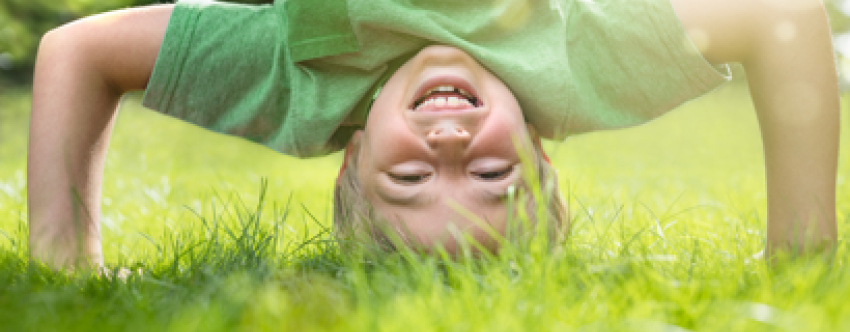News & Views

Tips for parents to support pupil wellbeing over school holidays
Six weeks or 42 days… the summer holidays can sound like a long time! How can you keep children feeling fit and well in this time? Here are some tips for parents.
Look at the Five Ways to Wellbeing guidance
The Five Ways to Wellbeing is a set of evidence-based actions aimed at improving personal wellbeing and mental health. You can try just one, a few or all of them and see how you feel afterward. As with most things to do with feeling good, it can take a bit of time to notice the difference, so keep trying them!
The five ways to wellbeing are:
1. Connect: this is about the fundamental human need for feeling close to and valued by other people. It can have a positive effect on mental health. Some simple ways to connect more could be to:
- join a physical activity outside (an impromptu game in the park or something more organised like those led by the Holiday Activity Fund)
- encourage children to talk to someone instead of sending a text or email
- go for a walk and chat with someone.
You might like to encourage children to talk about what they can see, hear or smell on the walk and ask how children feel so that they and you can become more aware of their emotions at different times of the day.
2. Be active: this is a well-known way of improving wellbeing. There is a lot of research to say that being active can help you feel better physically and mentally as you are active and afterward too. Here are some ideas:
- Walk up the stairs rather than take the lift.
- Dance while the TV adverts are on.
- Stretch while waiting for the kettle to boil or for dinner to be ready.
- Get off the bus one stop earlier and walk the rest of the way.
- Cycle or walk to the shops.
- Play some energetic indoor games like musical statues.
3. Take notice: research shows that being aware of what is happening in the present moment directly enhances your wellbeing. Take some time to enjoy being ‘in the moment’ and notice the environment around you. You could encourage children to find and smell flowers; accompany them to visit somewhere new; go outside and listen for birds; notice the weather and embrace all the possibilities that it brings, or just stop and look at things in more detail.
4. Keep learning: lifelong learning can have a positive effect on self-esteem and self-worth, and setting goals has a strong association with better mental health and wellbeing. It doesn’t have to be academic learning – it can be anything you didn’t know before. Here are some examples:
- Learn to play or understand a new sport that you didn’t know about before.
- Learn new skills that will be useful for now and the future (perhaps cooking, growing food or navigating).
- Do a puzzle, crossword or quiz.
- Read a different type of book, and maybe share your views about it afterwards.
- Research something you’re curious about – whether online or in a library.
- Learn a new word or phrase, or if you’re feeling adventurous, start to learn some words or phrases in another language.
It’s all about keeping your mind active.
5. Giving: this is about giving your time, not money. Did you know that people who report an increased interest in helping others are more likely to rate themselves as happy? Committing an act of kindness once a week over a six-week period is associated with an increase in wellbeing. Perhaps you could support children to offer their help to a friend or relative with a task; children could volunteer with a local charity and give their time; children could do a favour for a neighbour or friend (without expecting anything in return!).
Ensure children have enough rest and sleep
While it might be tempting to ensure children have something exciting to do every single day of the holidays, it is also vital to help children to rest and sleep properly. The daily act of attending school, with all the disruptions and changes over the past couple of years, can take its toll on children, who ‘tell’ or communicate to adults through their behaviour. How many times have you seen a distressed or agitated child and noticed that their behaviour was trying to tell adults that they are tired and need to rest?
There's a close relationship between sleep and wellbeing and a lack of sleep can also negatively impact our mental health and wellbeing. There isn’t a magical cure for improving sleep but noticing what works better for children can help them enjoy better sleep and feel like they and you are more in control.
Top tips for rest and sleep for children (and adults!)
- Try to go to bed at the same time each night and get up at the same time each morning. If you can, avoid sleeping in – try to maintain a routine.
- Spend time outside during the day to get as much exposure to natural light as possible.
- Avoid screens before bed – the ‘blue’ light emitted from devices interferes with your ability to sleep.
- Take time to relax before bed: have a warm bath, read or have a story read to you, listen to relaxing music or meditation, do some simple stretches, write down or draw your thoughts…
- Ensure your bedroom is cool, dark and quiet.
- Make sure you have eaten and drunk enough during the day so that hunger and thirst don’t wake you up at night.
- Try some deep breathing exercises to help calm your body and make it ready for sleep: breathe in for the count of four and out for the count of seven.
- Be physically active during the day so that your body is tired and ready to rest fully.
Overall, keep the holidays a simple time for children. Allow them to find what they enjoy rather than provide adult-led stimulation for them all the time. Teach them to nurture their wellbeing by showing them how you nurture yours and allow them to share their ideas with you so you can learn from them too.
Look at the Pupil Wellbeing Award for a year-round approach to pupil wellbeing.
About the author

Joanna Feast is an education consultant specialising in PSHE education across the age ranges. She is also the founder of Clean Wellbeing and author of the Outdoor Learning Award.